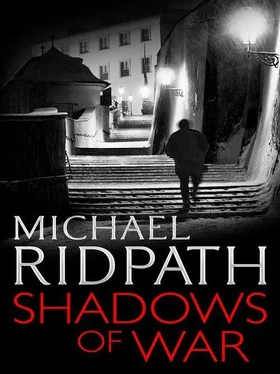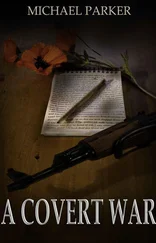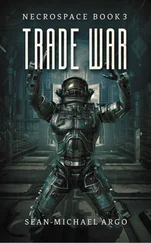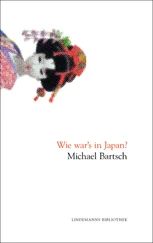‘And how is Herr Hitler?’ asked Alston with ironic politeness.
‘Mighty relieved not to be blown to hell in Munich. I saw him the day after the bomb went off. He seemed to think that God had saved him. Or Providence. Or someone.’
‘The devil?’ Freddie volunteered.
Bedaux laughed. ‘Probably.’ His expression became serious. ‘Anyway, I became aware of your proposals and your willingness to countenance an end to this stupid war, and I thought it made sense to fill you in on the Führer’s thinking. About Britain.’
‘Go on,’ said Alston.
‘He doesn’t know your country very well, but he has plenty of respect for it. He admires Britain’s traditions and its history, and places Englishmen in the same racial category as Germans. He would like Britain to leave Germany in control of Europe, in return for which Germany would leave Britain in peace to run the rest of the world through her empire.’
‘What did I tell you?’ said Alston to Copthorne.
‘He is also a great admirer of your former King Edward,’ Bedaux said. ‘He met him when Edward visited Germany in 1937. Hitler feels that if the Duke of Windsor were to become king again, Germany would be able to do business with Britain.’
‘I’m not sure that could ever happen,’ said Copthorne.
‘Couldn’t it?’ said Bedaux.
Alston met the American’s eyes, which didn’t flinch. Bedaux seemed unperturbed by Alston’s ravaged face.
‘Not with the current government,’ Alston said. ‘But there will never be peace as long as Chamberlain is Prime Minister. Probably not if Halifax was PM either.’
‘What about Sir Oswald Mosley? Hitler knows him.’
‘Oswald Mosley will never lead Britain,’ Alston said. ‘The British people are simply not fascists. The uniforms, the parades, the histrionics: they might suit the Germans or the Italians, but the average Englishman would run a mile. No, a government for peace in Britain would be very different. It would be pragmatic, sensible, patriotic in a low-key way, doing what is best for Britain. I also believe that the duke would make a good king for that kind of country. He has charm, much more than George, and a real connection with ordinary people.’
‘But what about the government? If not Oswald Mosley for Prime Minister, who?’
‘Lloyd George, probably. He is less fiery now he is an old man. He has stature in the country and he would promote peace with Germany in the right circumstances. Of course, he is in his late seventies, so he would need to have men around him to run the government.’
‘Men such as yourself?’ Bedaux asked. ‘I have heard good things about you.’
Alston smiled. ‘Possibly.’
Bedaux looked around the restaurant. No one was in earshot. ‘Something would need to change for such a government to come to power, wouldn’t it?’ he said.
‘Yes. Chamberlain would have to go.’
‘At some point — maybe next week, maybe next month, maybe next year — Germany will launch an offensive against France through Belgium and possibly Holland. It seems to me that there are two possible outcomes.’
Alston was listening closely.
Bedaux leaned forward, his boxer’s face animated. ‘One. The French and the British stop the Germans like they did in the last war, and there is a long, bloody stalemate. Chamberlain and his friends dig in; the war lasts for years. Not an ideal state of affairs.’
‘No.’
‘Two. The Germans punch through a weak spot in the French lines. The Allied armies crumble. The French are defeated. The British people realize they must get rid of their prime minister and their king, and make peace with Germany. The Germans make a fair peace with the British and a tough one with the French. The war is over. The killing stops and people like me can go back to peace and prosperity.’
‘I see.’
‘Now, I was born in France, but even so it seems to me that the second outcome is the better one. Doesn’t it to you?’
Alston understood exactly what Bedaux was saying. He glanced at Freddie, who was frowning. But Alston had a question.
‘If the second outcome were to actually occur, what would your role be, Monsieur Bedaux?’
‘Same as it always is,’ said Bedaux with a grin. ‘I am just a facilitator. I make things run smoothly, be they factories or peace negotiations. All I would ask is that my friends remember who helped them. I was born in France, I have an American passport, but I am really a citizen of the world.’
Alston was now a politician, but he was also a banker, and he knew how businessmen thought. If the world did indeed turn out as Bedaux had described, then he and his businesses would do very nicely. Very nicely indeed.
‘I can ease things, but I can’t make things happen,’ said Bedaux. ‘It’s people like you who will make things happen, Sir Henry.’ The American dismembered his grouse skilfully. ‘By the way, my Amsterdam office had a visitor recently, a colleague of yours from Gurney Kroheim.’
‘I wasn’t aware that Bedaux International was one of our clients,’ said Alston.
‘No. Neither was I. But this man said that you had been enquiring about me and my company. Apparently you personally were interested in using the Bedaux System in bank processes.’
Alston frowned. ‘That’s very strange. I mean, I am sure your system would be very useful, Bedaux, but I know I didn’t ask a colleague to look into it. Did your office get the man’s name?’
‘Yes. De Lancey. Do you know him?’
Alston’s frown deepened. ‘Yes, I do know him. And he doesn’t work for Gurney Kroheim.’
‘Then what was he doing claiming he was?’ said Bedaux.
‘That is a good question.’
As promised, Bedaux left the lunch early, before the pudding, leaving Alston and Copthorne with their spotted dick and custard.
Alston was excited. Bedaux’s vision matched closely his own. And it was clear that Hitler would go with it, even if the current British government wouldn’t. ‘What do you think of that, Freddie?’ he said.
But Freddie Copthorne looked unhappy. ‘I don’t like that man, Henry. I don’t like that man at all.’
Heston Airport, Middlesex
It was dusk in Middlesex as Conrad’s aeroplane landed. It had been touch and go getting out of Holland. He had plunged down the stairs and out of the Academy building and hopped on a tram to the railway station, from where he had taken a taxi to the airport. Schiphol wasn’t far from Leiden, but he had had a couple of hours to wait before the aeroplane on which he had booked a seat was due to take off, two hours of anxiety lest he was accosted by a Dutch policeman or airline official and asked to ‘come this way, sir’.
But the Dutch authorities weren’t quick enough, and it was with a sigh of relief that Conrad looked down over the coastline of Holland retreating behind him.
Professor Hogendoorn would have quite a lot of explaining to do. Fortunately, he must have preferred to prevaricate rather than point the police towards Conrad. It was clear that the professor had betrayed Theo. It was just a shame that Holland was not yet at war with Germany; then Hogendoorn’s actions would be classified as treason. Or would they? Was betraying one German to another really treachery against Hogendoorn’s country? Working out who was on whose side was becoming increasingly complicated in this damned phoney war.
As Conrad descended the steps to the tarmac at Heston, he was surprised to see a burly figure he recognized: Major McCaigue. The major held out his hand.
‘Welcome back, de Lancey. After your journey, I thought you might like a lift back to London.’
‘I would indeed,’ said Conrad. ‘As a matter of fact, I have quite a bit to tell you.’
Читать дальше












